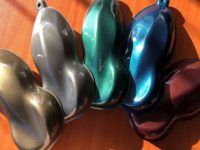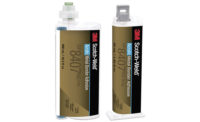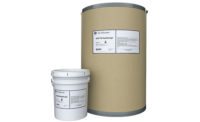Japan—Toyochem Co. Ltd., a member of the Toyo Ink Group of Japan, has developed a new series of biodegradable pressure-sensitive adhesives (PSAs). Marketed under the Cyabine™ series of polyurethane PSAs, the newly developed product is suitable for materials for the packaging, construction, agriculture and other industries where the use of biodegradable or recoverable materials are preferred.
In recent years, there has been growing interest in reducing plastic waste, in particular with regard to the development of biodegradable materials that reduce the use of petroleum and its negative impact on the environment. In many countries, industrial waste generated from fields such as civil engineering, forestry and agriculture need to be recovered or decomposed naturally without imposing a burden on the environment. While the base paper or film substrates used in recovered products are biodegradable, the additives such as adhesives traditionally used to coat or treat them are not, resulting in disposal issues.
In response to this issue, Toyochem researchers in Japan developed a high-performance biodegradable PSA based on an innovative biodegradable polymer design. In addition, by using plant-derived raw materials, the new Cyabine adhesive achieves a biomass content on a dry weight basis of up to 45%. This means the product can reduce CO2 emissions throughout the lifecycle of the newly developed product, without compromising on adhesive performance.
After use, the adhesive waste can be digested by soil microorganisms and converted over time into substances, such as carbon dioxide, water, nitrogen and methane gas, thus helping to reduce landfilling and further close the circular loop on plastic waste.
The new PSA system also demonstrates biodegradation rates of 60% or higher after 60 days. When combined with other biodegradable materials used in a wide range of products, it helps to improve the overall biodegradability of these products.
The biodegradability of the new Cyabine PSAs has been confirmed under controlled composting conditions as prescribed by the Japanese Standards Association’s JIS K 6953-1, the equivalent of the international standard ISO 14855-1. It is currently available in Japan with a worldwide release to follow in the next few years.
Visit www.toyo-chem.com/en/.







